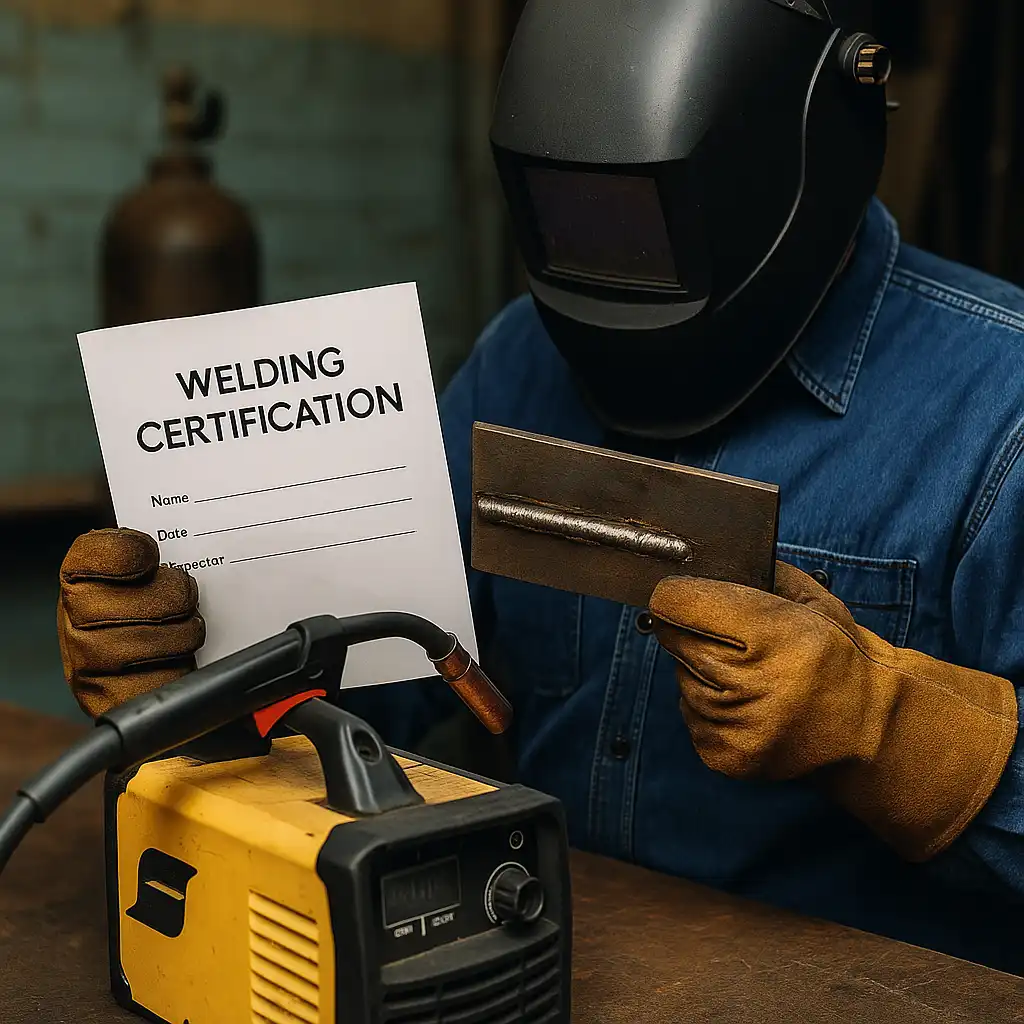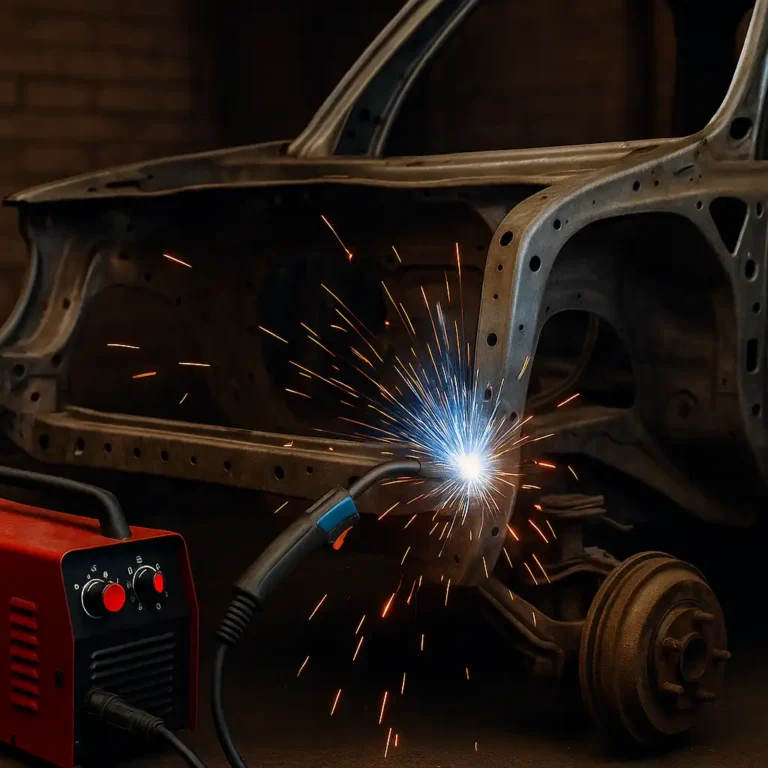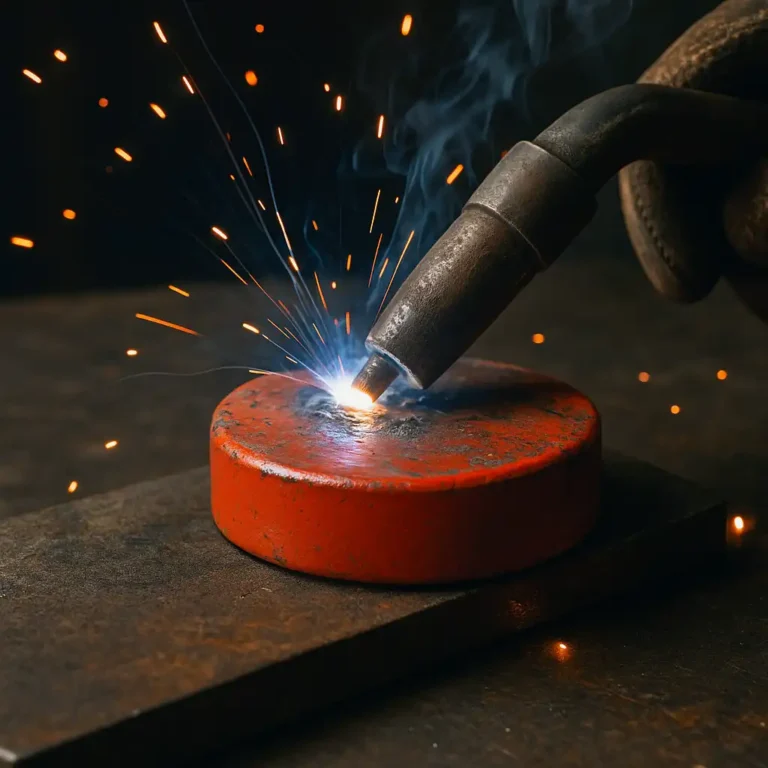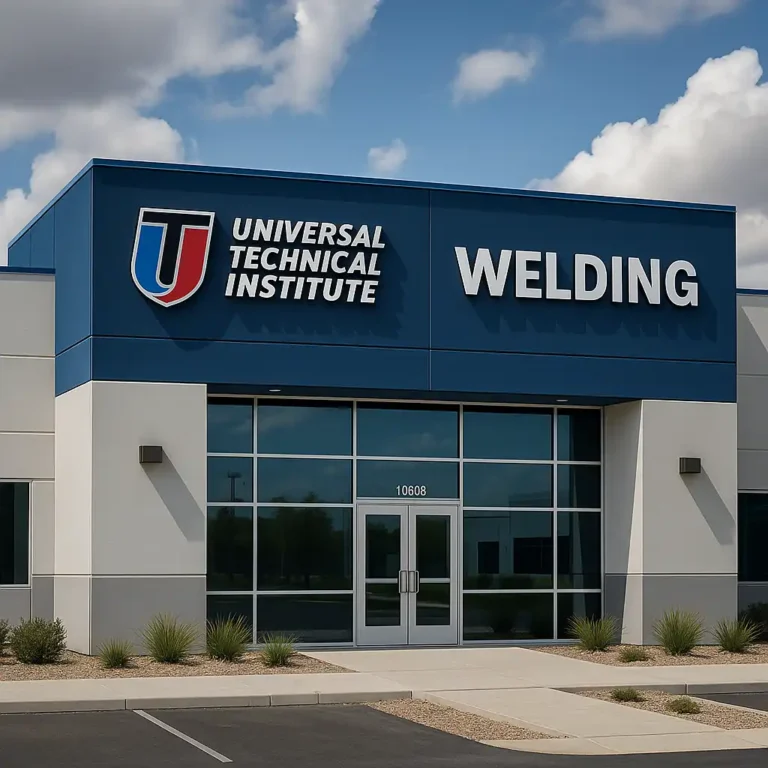How to Get Certified in Welding: A Straightforward Guide That Actually Helps

Disclosure: This post contains affiliate links. As an Amazon Associate, I earn from qualifying purchases—at no extra cost to you.
Getting certified in welding is one of the best moves you can make if you’re serious about the trade. Whether you’re aiming for better job opportunities, shop credibility, or simply want to prove you can lay down solid, consistent welds, certification gives you that edge.
Let’s break down what the process looks like—and how to set yourself up for success.
Picking the Right Welding Certification to Start With
The most common certification welders pursue is the AWS D1.1 structural welding cert, which applies to steel used in buildings and frameworks. It’s the one most employers look for when hiring.
Trade schools and local welding programs are popular starting points. These courses often include hands-on practice with the same welding positions and joint types you’ll be tested on—like overhead stick or vertical MIG welds. Based on welder feedback, programs that focus heavily on booth time and instructor coaching tend to get better results than ones that lean too much on classroom theory.
If you’ve already got experience, you can test directly at an AWS-accredited test facility. Just make sure you’re familiar with the specific welds required and how the test will be structured. Many welders recommend at least a few hours of focused prep before jumping in.
Get Comfortable with the Setup and Equipment
Certification tests take place in controlled environments with specific machines. Depending on what you’re testing for, you’ll work with MIG, stick, or TIG welders, and you’ll need to handle various positions like 1G flat, 3G vertical, or even 6G pipe.
It’s worth practicing on equipment as close as possible to what the test center uses. Switching from your garage MIG setup to a stick machine for 3G welds without prep can throw you off. Many instructors or local shops offer booth rentals so you can train on pro-level machines ahead of time.
This step is especially helpful if your home setup is limited or you’ve only worked with one welding process.
Don’t Skip Safety and Theory
While the hands-on test is the main focus, you’ll also need to understand basic welding safety and welding symbols. Some certs include a written section that covers things like joint prep, electrode selection, PPE, and OSHA rules.
It’s smart to brush up on safety guidelines—especially for processes that involve high heat, UV exposure, or heavy fume output. Feedback from seasoned welders suggests that poor torch handling or incorrect PPE is one of the fastest ways to get flagged during a test.
Having your fundamentals down shows you’re not just technically skilled but also a safe and reliable welder.
What It Costs—and Why It’s Worth It
Expect to spend anywhere from $200 to $800 for the test itself, depending on location and certification type. Add a training course or refresher, and the total can reach $2,000 to $5,000.
Most certified welders agree it’s worth the investment. The boost in job access, pay rate, and trust from clients or employers more than makes up for the upfront cost. Certification also unlocks opportunities for government and union work, where credentials are non-negotiable.
Even if you’re running a side business out of your garage, being certified gives your work more legitimacy—and helps you stand out in a crowded field.
Conclusion
Welding certification is a practical, valuable way to grow in the trade. It proves you’ve got the skills, the discipline, and the know-how to handle real-world jobs safely and correctly. Whether you’re aiming to get hired, charge more for your work, or just build confidence with every bead you lay, certification puts you on solid ground.
Choose the right cert for your goals, get familiar with the equipment and test layout, and prepare with intention. That’s how you go from hobbyist to certified welder—without wasting time or money.






